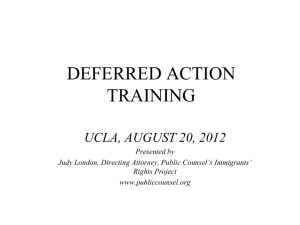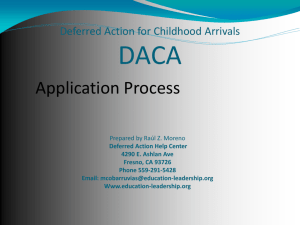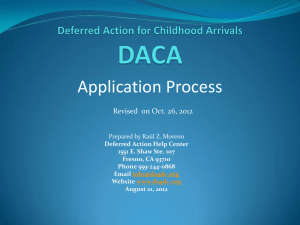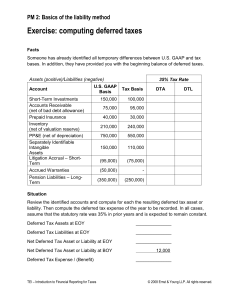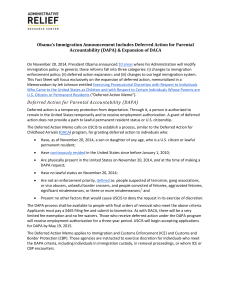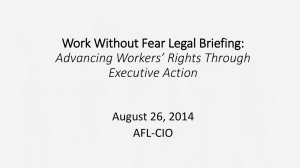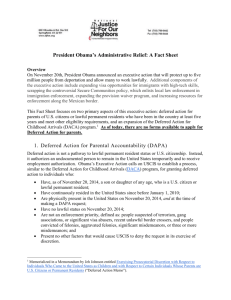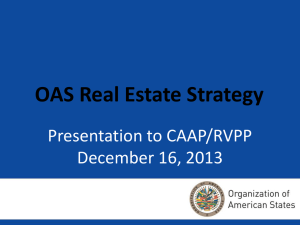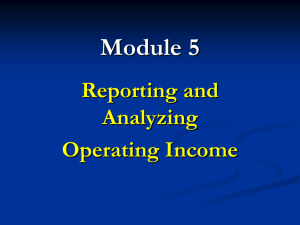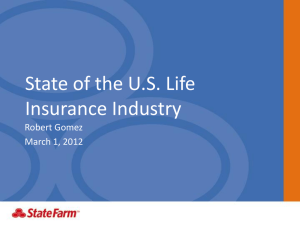On June 15, 2012, the Department of Homeland
advertisement
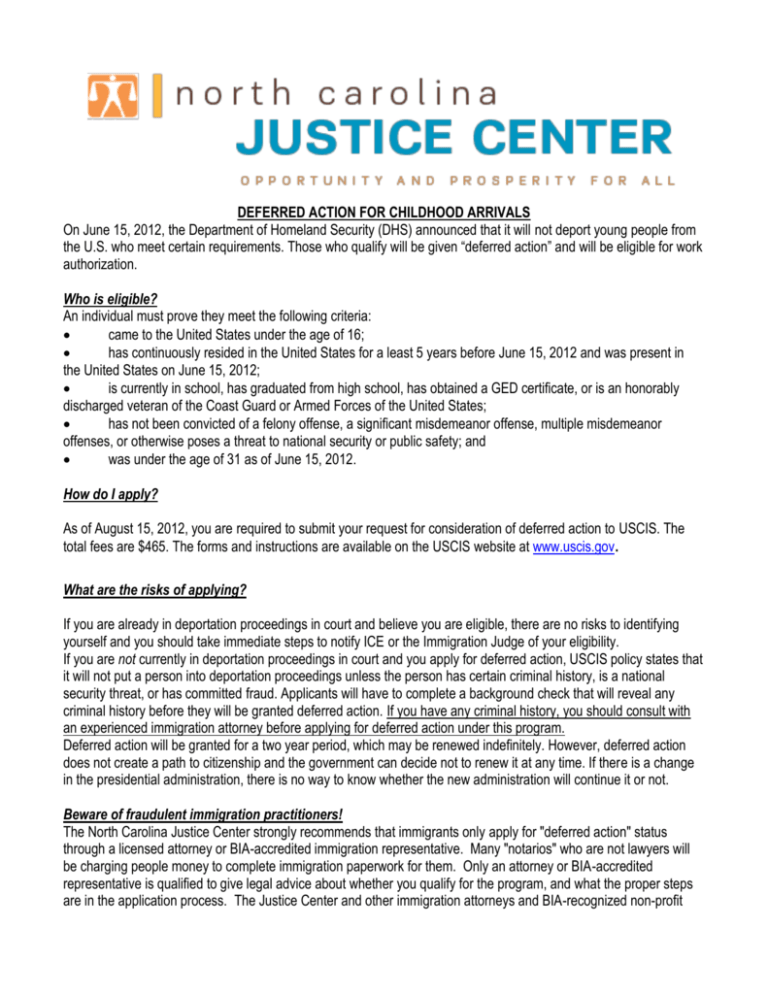
DEFERRED ACTION FOR CHILDHOOD ARRIVALS On June 15, 2012, the Department of Homeland Security (DHS) announced that it will not deport young people from the U.S. who meet certain requirements. Those who qualify will be given “deferred action” and will be eligible for work authorization. Who is eligible? An individual must prove they meet the following criteria: came to the United States under the age of 16; has continuously resided in the United States for a least 5 years before June 15, 2012 and was present in the United States on June 15, 2012; is currently in school, has graduated from high school, has obtained a GED certificate, or is an honorably discharged veteran of the Coast Guard or Armed Forces of the United States; has not been convicted of a felony offense, a significant misdemeanor offense, multiple misdemeanor offenses, or otherwise poses a threat to national security or public safety; and was under the age of 31 as of June 15, 2012. How do I apply? As of August 15, 2012, you are required to submit your request for consideration of deferred action to USCIS. The total fees are $465. The forms and instructions are available on the USCIS website at www.uscis.gov. What are the risks of applying? If you are already in deportation proceedings in court and believe you are eligible, there are no risks to identifying yourself and you should take immediate steps to notify ICE or the Immigration Judge of your eligibility. If you are not currently in deportation proceedings in court and you apply for deferred action, USCIS policy states that it will not put a person into deportation proceedings unless the person has certain criminal history, is a national security threat, or has committed fraud. Applicants will have to complete a background check that will reveal any criminal history before they will be granted deferred action. If you have any criminal history, you should consult with an experienced immigration attorney before applying for deferred action under this program. Deferred action will be granted for a two year period, which may be renewed indefinitely. However, deferred action does not create a path to citizenship and the government can decide not to renew it at any time. If there is a change in the presidential administration, there is no way to know whether the new administration will continue it or not. Beware of fraudulent immigration practitioners! The North Carolina Justice Center strongly recommends that immigrants only apply for "deferred action" status through a licensed attorney or BIA-accredited immigration representative. Many "notarios" who are not lawyers will be charging people money to complete immigration paperwork for them. Only an attorney or BIA-accredited representative is qualified to give legal advice about whether you qualify for the program, and what the proper steps are in the application process. The Justice Center and other immigration attorneys and BIA-recognized non-profit organizations will be providing assistance to applicants. What can I do before applying? Get the application fees totaling $465 ready. Advisable to buy a Money Order and make it payable to “Department of Homeland Security.” Gather documents to prove that you came to the U.S. before you were 16 and that you have been in the U.S. since at least June 15, 2007. These documents can include school records, medical records, financial records, military records or any other records that list your name and date. Gather documents to prove that you are currently in school, have graduated from high school, or were honorably discharged from the military. These documents can include diplomas, a GED certificate, report cards, school transcripts, and military records. If you are not currently in school and did not graduate from high school or do not have a GED, you should enroll in a GED course in order to qualify. If you have had ANY contact with law enforcement, you should get a criminal record check. In North Carolina, many traffic violations are misdemeanor offenses. Therefore, you should get a criminal record check so that an experienced immigration attorney can evaluate whether your criminal history will prevent you from getting deferred action. How can I get help to apply? The North Carolina Justice Center will hold free Deferred Action clinics where attorneys and BIA accredited representatives will assist people with their applications. Details and dates of the clinics will be available at http://www.ncjustice.org/deferred-action or at: (919) 675-2409. You may also email us at deferred.action.ncjc@gmail.com.
